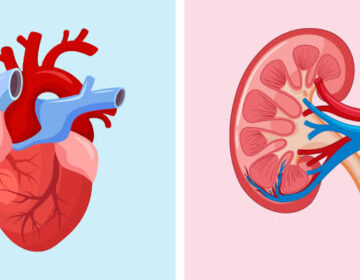Eating more plant-based foods is linked to better cardiovascular health, but only when those foods are high in nutritional quality and minimally processed. This conclusion comes from a team of researchers at INRAE, Inserm, Université Sorbonne Paris Nord, and Cnam, who analyzed health data from 63,835 adults.
Earlier research has shown that consuming large amounts of ultra-processed foods increases the risk of cardiovascular disease, while other studies have found that diets rich in well-balanced, nutrient-dense plant-based foods can help lower that risk.
To better understand how diet affects heart health, the INRAE and Inserm team went beyond the basic comparison of plant-based versus animal-based diets. They examined not only the ratio of plant to animal foods but also their nutritional composition—such as levels of carbohydrates, fats, antioxidant vitamins, and minerals—and the extent to which they were industrially processed.
The study drew on data from participants in the French NutriNet-Santé cohort. On average, participants were followed for 9.1 years, with some tracked for up to 15 years. Dietary information, including foods and beverages consumed over at least three days, was gathered through online questionnaires.
This detailed dataset allowed researchers to categorize diets based on the proportion of plant versus animal foods, their nutritional quality, and their level of processing.
The researchers discovered that adults who consumed more plant-based foods of high nutritional quality—those lower in fat, sugar, and salt and with minimal or no industrial processing—had about a 40% reduced risk of developing cardiovascular disease compared to individuals whose diets contained fewer of these plant-based foods and more animal-based products.







